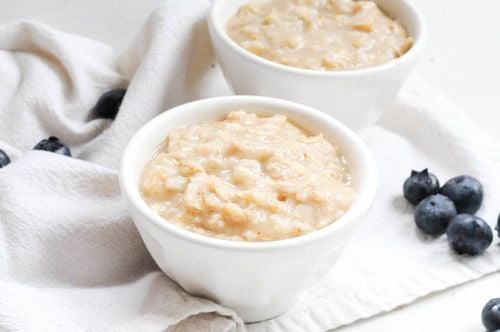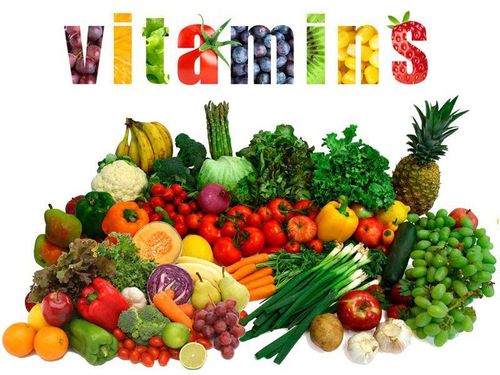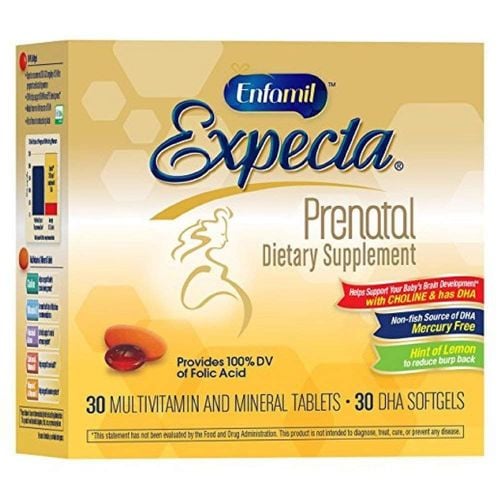This is an automatically translated article.
Article by Dr. Dr. Phan Nguyen Thanh Binh - Head of the Department of Nutrition - Dietetics - Department of Pediatrics - Neonatology, Vinmec Central Park International General HospitalNutrition plays an important role to help children be provided with adequate energy and nutrients. At the same time, the children will have the best resistance against the attack of pathogens. Teaching children good eating habits and choosing foods to help strengthen the immune system, not only to cope with the immediate pandemic, but also to lay the foundation for future health.
1. Children at risk of low immunity
Children in the early years have an immature immune system, so there is a great risk of affecting their health, especially those with a weak immune system. Children at risk of poor immunity such as:
Premature birth (before 37 weeks), low birth weight (under 2.5 kg) Not breastfed or breastfed for less than 6 months Malnutrition Congenital disease: failure Decreased innate immune system, cardiovascular disease,... Background disease: nephrotic syndrome, type 1 diabetes,... Frequent use of antibiotics Lack of sleep and no outdoor exercise, under the sun God
2. The principles of nutrition for babies
To strengthen children's immunity, parents need to consult experts to understand the principles of nutrition. Because if you apply the wrong diet, it can cause children to encounter a number of health risks. Parents should "know" a few rules of nutrition for their children below:
Make sure to provide enough energy needs, energy-producing substances, vitamins and minerals according to the needs of each age. Diversify foods, ensure to provide enough 4 groups (carbohydrate group, protein group, fat group, vitamin and mineral group). Increase foods rich in protein, vitamin A, vitamin C, vitamin D, vitamin E, zinc, iron, selenium, omega 3, probiotics... are nutrients that participate in the activities of the immune system , strengthen the body's immunity. Provide enough water for babies to ensure the best functioning of the organ systems. Water helps the mucous system in the respiratory tract work properly, protecting cells in the mucous membranes from being damaged. At the same time, water reduces the ability of pathogens to stick to cells, helping to limit bacteria and viruses from entering the respiratory system. This ingredient helps the feathers of the respiratory tract to be soft, capable of eliminating pathogens from the body. Therefore, it is very important to prevent viral infections. Meeting nutritional needs when sick: the need for nutrients increases if the child is malnourished, has a metabolic disease, an infectious disease or is in the recovery phase of an acute illness. Ensure food hygiene and safety throughout the process from food source selection - preservation - processing - display - dining table. Choose fresh and delicious food, eat cooked, drink boiled, the processing process is not infected with bacteria, poisoning, ensuring food hygiene and safety.

3. Reasonable nutrition strengthens immunity for children at each age
Nutrition for babies at each stage will change, parents should pay attention to adjust the amount of food as well as nutrients accordingly.
3.1. Children under 6 months of age In addition to antibodies "passively" transmitted by the mother to the placenta, after the baby is born, breast milk is the best immune nutrition food for children. Breast milk contains antibodies that help the baby fight off diseases. At the same time, breast milk helps form and maintain a healthy immune system for babies, especially gastrointestinal immunity. Breastfed babies are also less likely to develop metabolic disorders in adulthood.
Therefore, babies need to be breastfed soon within 1 hour after birth and exclusively breastfed for the first 6 months after birth, on demand, without any food other than breast milk. When babies are sick or vaccinated, they still breastfeed normally.
Prioritize the use of breast milk if the baby is born too prematurely, has a birth weight of less than 1800 g, is low for gestational age, or has an inadequate rate of weight gain. Parents need to be consulted by a nutritionist to enrich the substances in breast milk to suit the higher than normal needs of premature babies.
Finally, pay attention to adequate nutrition and reasonable rest for the mother when breastfeeding.
3.2. Children aged 6 - 36 months From 6 months old, children are exposed to more environments while the amount of antibodies transmitted through breast milk decreases, making them more susceptible to infection. Children need enhanced nutrition and external support to develop and perfect the immune system. The principle of nutrition at this stage is: In addition to milk, the baby needs to be supplemented with soft foods, gradually increasing the roughness, hardness, and consistency with age.
Children 6 - 7 months old: after the baby turns 6 months old, start giving them complementary foods, usually starting with liquid powder, from little to more, from liquid to solid. Add 1-2 times of fruit juice and maintain breastfeeding 6-8 times/day. Children 8 - 9 months old: children have teeth, they need to practice chewing reflex, so they need to practice giving them denser and coarser powders. Babies need to learn to eat a variety of foods, but mealtimes need to be changed frequently. Food should be eaten whole to ensure enough nutrients, especially protein, fiber, vitamins and minerals that play an important role in the functioning of the immune system to protect the body. Newborns breastfeed 5-6 times/day, 2-3 meals of 10% solid powder (200 ml/meal with fish/meat/eggs: 20-25g/meal; green vegetables: 10-20g/meal, oil) / fat: 7-10 ml / meal). Add 1-2 meals of mashed fruit, yogurt, cheese. Babies 10-12 months old can eat raw better, switch to porridge mode. Continue breastfeeding 4-5 times/day, 3-4 meals of porridge (fish, meat, eggs: 20-25g; green vegetables: 20g/meal, oil and fat: 7-10ml/meal). Add 1-2 meals of ripe fruit, yogurt, cheese. The children aged 13-24 months old both breastfed and had 3-4 meals of porridge (200-250 ml/meal). After 18 months of age, children can learn to eat crushed rice, supplemented with 1-2 meals of thinly sliced ripe fruit, yogurt, and cheese. Children from 24 to 36 months old will eat 3 main meals with their family. Each meal includes 30-40 g of protein-rich foods, 25-30 g of leafy vegetables, fruits and vegetables. Baby's snacks can eat fruit / ripe fruit, milk and milk products.
3.3. Children from 3 to 5 years old At this time, children have started to eat with the family: 3 main meals and 2-3 snacks. The recommended amount of food for 1 day to strengthen the child's immunity is as follows:
Grains, potatoes and processed products: average 5-6 units of cereals, potatoes (1 unit corresponds to 20g). carbohydrates = 1/2 cup of rice/vermicelli/pho/... = 1 small potato (100g) in a day. Leafy vegetables, vegetables: 2 units of leafy vegetables, vegetables (1 unit=80g) a day, eat a variety of vegetables and tubers Ripe fruit/fruit: 2 units of fruit/ripe fruit (1 unit) =80g) a day. Children should eat a variety of ripe fruits. Protein: 3.5 units of meat, seafood, eggs and nuts rich in protein a day (1 unit corresponds to 7g protein = 35-45g meat/fish/egg/seafood/...) Eat a variety of protein-rich foods, balance between animal protein and vegetable protein. Milk and dairy products: can use 4 units of milk and milk products (1 unit corresponds to 100mg calcium = 100ml milk = 1 yogurt cup = 1 15g cheese tablet) a day. It is recommended to combine 3 types of milk / dairy products during the day to optimize nutritional composition, for example: 1 box of yogurt, 1 piece of cheese and 300 ml of milk. Grease: use less than 5 oil/fat meal units per day (< 25ml/day). Sugar: use no more than 3 units a day (< 15g of sugar). Salt: lightly seasoned, not more than 3g/day.

4. Foods to help strengthen children's immunity
Nutrients that play an important role in the body's immune system are: protein, vitamin A, vitamin C, vitamin D, vitamin E, selenium, iron, zinc, flavonoids and omega 3.
Protein: needed combine both animal and vegetable protein foods (legumes, beans). Vitamin A and Beta-carotene are abundant in meat, fish, eggs, liver, milk, broccoli, spinach, sweet potatoes, turmeric, pumpkin, carrots, oranges, ripe mangoes, gac fruit... Vitamin C is found in vitamin C. fresh vegetables and fruits: cauliflower, sweet peppers, tomatoes, grapefruit, oranges, tangerines, kiwi, apples, grapes... Vitamin E is found in bean sprouts, sprouts, sunflower seeds, products from soybeans, wheat... Vitamin D is found in fish liver, egg yolk, fish, seafood... However, vitamin D through food only meets 20% of needs, so children should be exposed to sunlight early from 15-30 minutes per day. Selenium is found in brown rice, sprouted rice, seaweed, fish, shrimp, seafood... Iron: found in meat, fish, liver, eggs, green vegetables, beans... Iron from animal sources is easy to find. more absorbable than plant source iron. Zinc is abundant in oysters, fish, seafood, poultry... Flavonoids are abundant in spices, broccoli, broccoli, grapes, apples, cherries, black beries; raspberries, strawberries, green tea, red wine... Omega 3 is found in products: fish oil, cod liver oil, sardines, salmon, basa, halibut, herring, tuna, oysters and some nuts...
5. Other ways to keep your child's immune system healthy
Besides nutrition, parents can apply the following measures to support and strengthen the immune system of young children:
Maintain personal hygiene and living environment to strengthen children's immunity by How to: take care of their teeth, nose and throat daily and regularly clean and disinfect children's toys Encourage children to wash their hands often with soap and water, stay away from sick people and limit going to crowded places . Put your baby to bed early before 9pm every day and sleep 12-14 hours/day for preschoolers Help children increase physical activity, especially in places with a fresh environment, 20 minutes in the sun every day morning. Avoid areas with lots of noise and smoke. When the children are sick, parents are not allowed to take antibiotics without the consent of the doctors to avoid being "sticky" to the medicine. This makes treatment more and more difficult. Give children full immunization according to schedule so that the body has antibodies against diseases, especially dangerous diseases such as diphtheria, whooping cough, tetanus, meningitis, encephalitis, chickenpox, measles, mumps, .... Nutrition for babies at each stage is very important. Because it can positively or negatively affect the physical and mental development of young children. Therefore, parents should not be subjective, neglect in each meal and sleep of their children.
Please dial HOTLINE for more information or register for an appointment HERE. Download MyVinmec app to make appointments faster and to manage your bookings easily.














